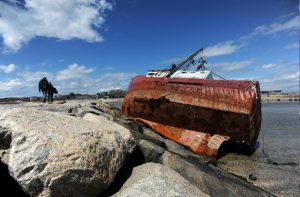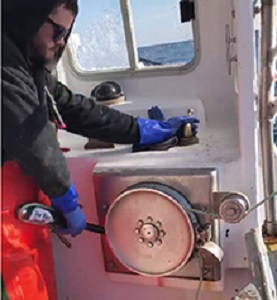 Because the negotiations are secret, it’s hard for anyone to know how serious or legitimate the suggestions are that the settlement might favor the Natural Resources Damage Assessment. “This was the single largest act of pollution we’ve seen in our country, and those responsible should pay for it,” Moore said. “Eleven people died, and record oil washed up on the shores of the Gulf Coast. If that’s not gross negligence, I don’t know what is.”
Because the negotiations are secret, it’s hard for anyone to know how serious or legitimate the suggestions are that the settlement might favor the Natural Resources Damage Assessment. “This was the single largest act of pollution we’ve seen in our country, and those responsible should pay for it,” Moore said. “Eleven people died, and record oil washed up on the shores of the Gulf Coast. If that’s not gross negligence, I don’t know what is.”
http://www.houmatoday.com/article/20121017/ARTICLES/121019700?p=1&tc=pg
How ’bout this? Lubchenco’s/NOAA’s role in the Outer Continental Shelf Oil and Gas Leasing Program for 2010-2015
In her September 21, 2009 twenty-six page response to Lisa Birnbaum, Director of the Mineral Management Service on the Draft Proposed Outer Continental Shelf Oil and Gas Leasing Program for 2010-2015. Ms. Lubchenco precedes her comments with a rundown of the federal laws that give her and NOAA specific responsibility in the areas covered by the draft proposal. These are “the Coastal Zone Management Act, the National Maine Sanctuaries Act, the Magnuson-Stevens Fishery Conservation and Management Act, the Endangered Species Act, the Marine Mammal Protection Act, the Oil Pollution Act of 1990, and the Coral Reef Conservation Act as well as NOAA’s statutory roles under the Outer Continental Shelf Lands Act, the Ocean and Coastal Mapping Integration Act, and the Hydrographic Services Improvement Act.”
Ms. Lubchenco then brings up a series of issues that were not adequately or accurately addressed in the proposal. Clearly she and NOAA had the ability, the foreknowledge and the duty to intercede in those issues. But did they? Anywhere from 10,000 to 100,000 barrels of oil still spewing into the Gulf of Mexico -we still don’t know how much – every day attest to how effective that intercession was.http://www.fishnet-usa.com/NOAA_Inaction.htm
![]() NEW ORLEANS (AP) — A year ago, lawyers for BP and Gulf Coast residents and businesses took turns urging a federal judge to approve their settlement for compensating victims of the company’s massive 2010 oil spill. On Monday, however, the one-time allies will be at odds when an appeals court hears objections to the multibillion-dollar deal. [email protected] 12:56
NEW ORLEANS (AP) — A year ago, lawyers for BP and Gulf Coast residents and businesses took turns urging a federal judge to approve their settlement for compensating victims of the company’s massive 2010 oil spill. On Monday, however, the one-time allies will be at odds when an appeals court hears objections to the multibillion-dollar deal. [email protected] 12:56














































